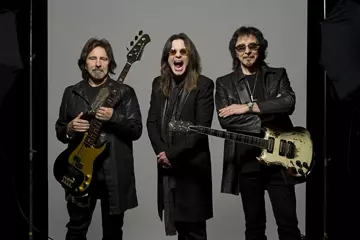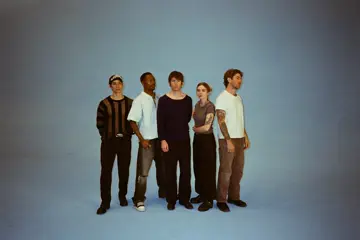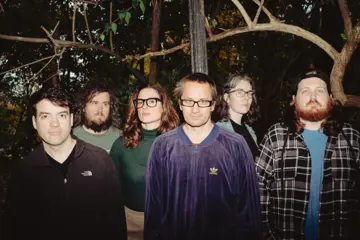Three years ago, Ivan Sen opened the 2013 Sydney Film Festival with Mystery Road, a policier that used the murder investigation genre to explore sociological issues. Its dead girl was Indigenous, its script a broadside against the treatment of Aboriginals by police, inspired by the fact that cases involving missing or murdered Aboriginal women — including two distant cousins of the filmmaker — are rarely pursued with much zeal. Its lead detective, Jay Swan, was played by Aaron Pedersen, this not-quite-hero a mixed-race 'turncoat' — a modern-day tracker too black for the local police force, too white for the local Aboriginal community. Being caught between two worlds is a feeling both the filmmaker and his star know well from their own lives, which inspired Sen to keep exploring the same character. Now, Goldstone will open this year's SFF, bringing things back full circle.
"There's literally nothing there. That's why people haven't filmed there. There's no power, there's no water; there's one pub that runs on a generator."
"That first screening [of Mystery Road] in Sydney," Sen recounts, "the audience reacted really well, and I was just standing up the back, and I just felt like there was something missing from this idea of this Indigenous detective in this desert landscape, trying to achieve this dream of universal justice in this small town, where he's up against the establishment, as well as his own community. I felt like it was missing this emotion, this... feeling, that's not something that I can totally articulate. So, right after the first screening I felt that I wanted to do another one. But I didn't really pursue it until Aaron Pedersen called me up and encouraged me to write another film. He was just as keen to keep exploring Jay Swan and his world."
In Goldstone, Sen explores the lead character in a deeper fashion, describing the film as a "spiritual journey" in which its central cop "reclaims his identity, his culture, his past". Again, these sociological ideas, which have deep resonance in Australian culture, are explored through the prism of genre. With another impressive cast — including Alex Russell, David Gulpilil, David Wenham, Jacki Weaver, Kate Beahan, and Michael Dorman — on side, Sen sought to go beyond what he did last time. "Goldstone takes things further: it takes in more cultural perspective, but there's also more generic thriller elements, there's much more tension and a faster pace than Mystery Road," Sen says.
Goldstone also takes things further in terms of its location. It was shot in Maryworth, "deep into Western Queensland," three hours west of Winton, where Mystery Road was shot. It's an area that, Sen says, has "never been filmed before". How come? "Because there's literally nothing there," he laughs. "That's why people haven't filmed there. There's no power, there's no water; there's one pub that runs on a generator. We basically had to build a town there, which took most of the budget for the film. It was the most intense, emotional shoot I've ever had. The whole crew got so close. The land is very, very strong there. It's strikingly beautiful, an area that is naturally treeless plains, it's never had trees, so there's something beautiful about its sparseness. We were all stuck out there together, and everyone connected with what we were doing, and with the land."
Don't miss a beat with our FREE daily newsletter
Though he's made fiction features about wayward Aboriginal youth (2002's Beneath Clouds, 2011's Toomelah), documentaries about 'lost' black women (2004's Who Was Evelyn Orcher?, 2007's A Sister's Love), and even experimental essay-movies about Area 51 (2009's Dreamland), Sen believes he's now found his calling: making genre movies shot through with social themes.
"When you make a film like Mystery Road, it's interesting," he says. "Some people are just there for the gun battle. Which is fine. But then, hopefully, they take on board that cultural perception that underpins the fabric of the action. Then you've got people who are interested in Indigenous films, but who might not normally go to genre movies. The trick is, then, balancing that so you don't [alienate] either audience. I pushed myself way more with [Goldstone] than I pushed myself in the past, to try and make sure that I do connect with a wider audience with this one.
"Even if you're making a genre movie, it has to have a deeper meaning. I'm taking stepping stones towards trying to redefine what genre means. By putting this Indigenous perspective, this conflicted Indigenous perspective, in the middle of something that is a Western, that is a thriller. It's taking a genre that we're all used to and giving it a dose of social, cultural complication. It's pumping it full of this real-life meaning, which has come from my life, and Aaron Pedersen's life, and the life of a lot of people in this country."















